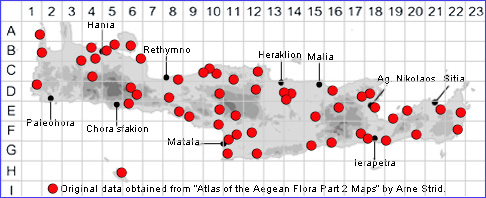SPECIES DESCRIPTION
OROBANCHE RAMOSA var. NANA
Family and Genus:- See- OROBANCHACEAE/Sect. TRIONYCHON
Common Names:- Branched or Hemp broomrape
Homotypic Synonyms:- Phelypaea ramosa
Meaning:- Orobanche (Gr) Legume-strangler. (one species is parasitic on
legumes)
Ramosa (L) Much branched, branching.
Stems:-
1) 5-30(-40) x 0·15-0·4(-0·6) cm, swollen at the base, usually branched, glandular-
pubescent.
Leaves:-
1) 3-8(-10) mm, alternate, ovate to ovate-lanceolate, acute.
Flowers:-
1) Inflorescence, 2-25 cm, lax or dense, glandular-pubescent.
2) Bracts, 6-8(-10) mm, ovate-lanceolate;
a) bracteoles, linear-lanceolate, about equalling the calyx.
b) pedicels, 0-5(-8) mm.
3) Calyx, 6-8 mm;
a) teeth, acuminate, usually shorter than the tube.
4) Corolla, 10-13(-17) mm, glandular-pubescent, suberect and inflated at the base,
erecto-patent, infundibuliform distally, whitish to pale blue or lilac.
a) lower lip, somewhat deflexed with suborbicular to elliptical, entire or finely
denticulate lobes.
5) Stamens;
a) filaments, glabrous, or hairy at the base, inserted 3-6 mm above the base of
corolla.
b) anthers, glabrous, or sparsely hairy at the base.
6) Stigma, white, cream or pale blue.
Fruit:-
1) Capsule, 6-7(-10) mm.
Key features:-
1) Corolla, 10-15(-17) mm, lobes of the lower lip obtuse.
2) Calyx-teeth, acuminate, usually shorter than tube.
Habitat:- Seasonally damp spots in scrub, olive groves and ruderal habitats. 0-1500
m.
Host:- Usually on cultivated plants, especially Cannabis sativa, Nicotiana tabacum
and Solanum spp. and legumes.
Distribution:- Fairly widespread throughout the Mediterranean region. Widespread
across Crete.
Flowering time:- Mar-June.
Photos by:- Steve Lenton

